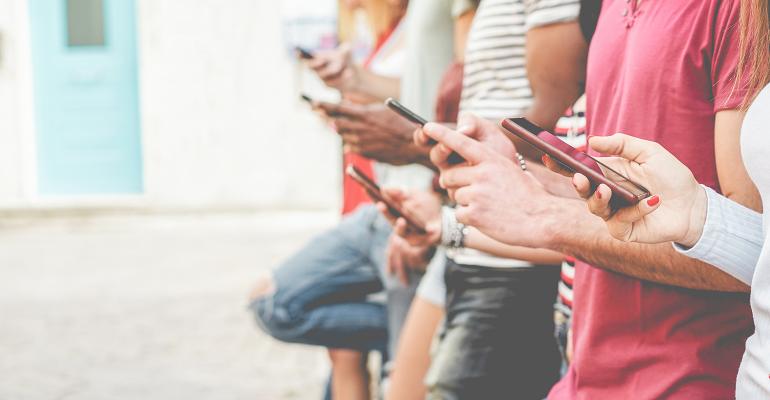Social Media Changes Students Interaction
May 20, 2016
Social Media has enabled generations of people easy access to local and global occurrences involving friends and loved ones along with virtual communication over long distances. Websites such as Facebook, Twitter, Instagram, Snapchat, and many others allow people from diverse parts of the world to connect on a personal level. Despite social media’s various uses of bringing people together, the misuse of it can cause several risks in physical, mental, and social health.
“People spend so much time on their phones that they only know how to communicate through their phones,” junior Trevor Dustin said.
According to Honor Whiteman in Medical News Today, recent studies show that approximately 42% of online adults use multiple social media sites. The majority of social media users, however, tend to be under the age of 30, specifically teenagers. According to Whiteman, Americans spend 7.6 hours a month on a social media site; however, several greatly exceed this amount. The overuse of social networking and social media addiction has increasingly become more common in recent generations and has been known to cause unhealthy self-expectations due to an emphasis on perfection.
“I think teens are affected by social media by caring too much what others think of them or how they perceive them to be,” junior Kacey Vaughn said.
According to Lexi Duley, who has dedicated her research to the health effects of social media, teenagers who use social networking websites multiple times throughout the day are often more prone to self confidence issues along with less developed communication skills. The high expectations and demand for perfection through social media can often lead many teenagers to turn to unhealthy habits and eating disorders. In addition, the lack of competence in communication, achieved only through real life interaction, can overall endanger future interactive occupations or opportunities.
“People have difficulty in things like a job interview where you have to be on your toes and confident in your answers…people lose the ability to talk to people face to face,” Dustin said.
Cyber bullying has increasingly lead to depression and self esteem issues in teenagers throughout the years. Hatefully commenting on pictures or posts can drastically affect a person’s mental health to the point of eating disorders, depression, or even suicidal thoughts. For example, according to Lexi Erickson in The Daily Universe, the Instagram celebrity, Essena O’Neill, recently quit social media after explaining how her seemingly “perfect” pictures were a draining process where she often would spend hours on her makeup and starve herself to look desirably skinny.
“I think some risks of the overuse of social media could be caring too much about how many likes you get on a picture and not actually living your life,” Vaughn said.
Although social media can create potential hazards to users, it can also be used to bring people together and create new relationships. Through lifting people up and spreading positive messages, social media can help users get to know others on a personal level and create relationships that could last for the rest of their lives.
“Share positive messages, don’t try and backlash at people over social media,” Dustin said.



























